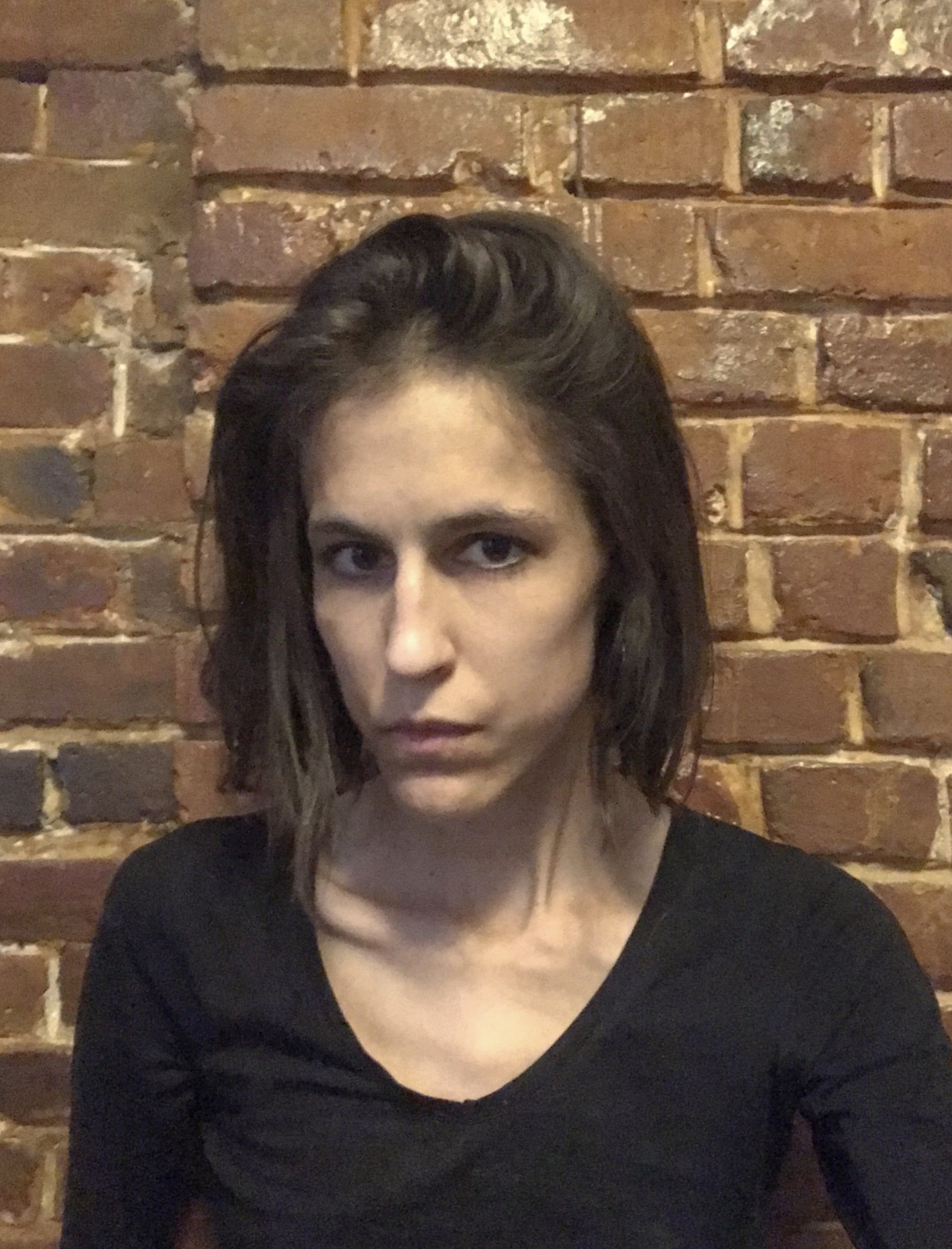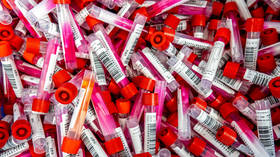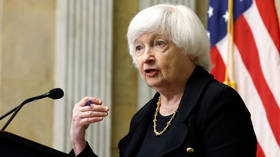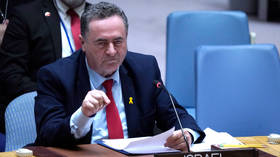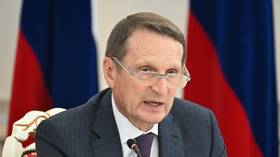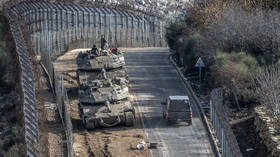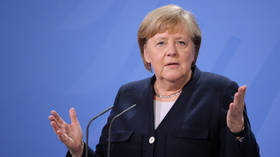RT is accused of supporting QAnon. But with Russiagate back for 2020, who are the real state-funded conspiracy theorists?
Certain mainstream media are losing sleep over what they claim is Russian support for pro-Trump conspiracy theory QAnon. But it’s their own obsession that spawned RT’s coverage – and their own behavior that encourages such groups.
According to Reuters, RT’s coverage of social media platforms’ crackdown on QAnon is proof that Russia actually supports the fringe movement, which believes President Donald Trump and a crew of “white hats” within his administration are going to save the US from a cabal of satanic pedophiles any moment now, swooping in to arrest everyone from failed presidential candidate Hillary Clinton to liberal billionaire George Soros in one great blast of swamp-draining.
Lacking any proof to back this hypothesis – indeed, the writer admits RT’s coverage has not only “fallen short of full-throated support,” but is even “critical” of the rightwing psy-op – the outlet instead defers to disinformation ‘experts’ Graphika, who note that the Internet Research Agency – the “Russian trolls” still blamed in some corners for delivering the 2016 election to Trump – tagged a bunch of tweets with QAnon slogans in 2019.
Also on rt.com Facebook purges & restricts THOUSANDS of QAnon, Antifa & militia accounts, stretching definition of ‘dangerous individuals’This less-than-compelling ‘proof’ ignores the deluge of QAnon-related stories US media have churned out in recent weeks depicting the movement as nothing short of an apocalyptic threat to the American way of life. Dozens of articles with headlines like ‘QAnon is running amok, and the time has come for interventions’ and ‘QAnon is conspiratorial, dangerous, and growing’ have flooded the internet, urging social media platforms to suppress it. Why hasn’t Reuters accused these outlets of promoting QAnon?
RT’s crime, it seems, was observing that the group “channel[s] legitimate outrage.” Apparently, commenting on the sociopolitical chasms dividing American society is verboten – at least, for media outlets Washington doesn’t like. US and friendly foreign media are allowed to do it as much as they please, but from anyone else, it counts as “sowing division.” For all its internal struggles, Washington seems to think its citizens should put on a happy face and present a unified front to the world – an absurdity that would be funny if Americans weren’t genuinely suffering under an incompetent government that would rather hand their tax dollars to private equity vultures, Israel, and the Pentagon than ensure they have food on the table.
Russian media didn’t create the widespread distrust in the American media establishment that fuels conspiracy theories like QAnon, whose adherents proudly share Trump’s disdain for the “fake news” churned out by the likes of CNN. They did – and continue to do – that themselves, by writing off legitimate dissent as foreign meddling and gaslighting Americans to within an inch of their lives. (Think you saw protesters in Portland burning Bibles? Who are you going to believe, the New York Times or your lying eyes?)
It’s not hard to see where this “Russia is promoting QAnon!” narrative is going, either. Just last week, the narrative managers at the Times were lamenting that while Facebook and Twitter have robust systems in place to suppress foreign media during election season, they don’t have an easy fix for domestic propaganda like QAnon. Linking the sprawling network of conspiratorial content to the Kremlin solves that problem.
But there’s more than a little irony in who Reuters has chosen to slay the dragon of disinformation. Graphika, a “social network analysis” firm that appears to specialize in squashing narratives that contradict the US government line, counts among its ranks such luminaries as Ben Nimmo, perhaps best known for baselessly accusing British and Finnish citizens of being Russian bots. Nimmo, who remains a senior non-resident fellow at pro-war NATO-backed think tank Atlantic Council’s Digital Forensic Research Lab and has also worked with the UK government’s secretive Integrity Initiative, was hired by Graphika last year as its Head of Investigations, suggesting the company values a vivid imagination over factual accuracy.
Also on rt.com Not with a bang, but a whimper: Final ‘Russiagate’ report provides ‘BREATHTAKING' evidence of… nothingLike the Atlantic Council itself, Graphika has partnered extensively with the same US government agencies that continue to flog the “Russian meddling won Trump the 2016 election” conspiracy theory. Rather than die a graceful death after the Mueller report failed to turn up the promised evidence of collusion in 2019, Russiagate has been resurrected for the 2020 election with a 1,000-page Senate report and a parade of ominous government statements suggesting nefarious foreign actors are to blame for any and all election results. Topping off this conspiracy souffle are the usual anonymously-sourced news articles reminding Americans to blame Putin if they don’t get their way in November.
Who’s the state-backed conspiracy theory peddler again?
Think your friends would be interested? Share this story!
The statements, views and opinions expressed in this column are solely those of the author and do not necessarily represent those of RT.
